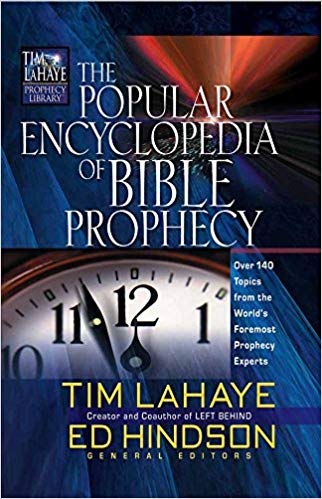AMILLENNIALISM Part III

THE POPULAR ENCYCLOPEDIA OF BIBLE PROPHECY
AMILLENNIALISM Part III
After being persecuted in Derbe, Paul and Barnabas returned to some of the cities where they had won converts to Christ and sought to give them advice: “Through many tribulations we must enter the kingdom of God” (Acts 14:22). If they were in the kingdom, this statement would make no sense. Since they were not in the kingdom, neither are we. They spoke of it as yet coming in the future. Several New Testament passages speak of the church inheriting the kingdom in the future (1 Corinthians 6:9-10; 15:50; Galatians 5:21; Ephesians 5:5; James 2:5). McClain (p. 433) notes that “Paul not only sees this inheritance of the Kingdom in future time but definitely excludes it from the present age by placing it after the resurrection and rapture of the Church.”
Christ is presently sitting victoriously at the Father’s right hand (Revelation 3:21) and making intercession for the saints (1 John 2:1-3). Such language does not suggest that Jesus is currently on David’s throne, which He will occupy for 1000 years in Jerusalem at His return. These are two separate thrones that He will occupy at two separate locations and times. Revelation describes Christ as personally present on earth during His millennial rule. Revelation 5:10 predicts the saints will reign with Him on the earth. At the end of 1000 years, the saints are still on earth, for this is where Satan comes to attack them (Revelation 20:9).
A SYMBOLIC INTERPRETATION
Amillennialism relies upon an unnatural, symbolic understanding of the 1000 years mentioned six times in Revelation 20:2-7. No one has demonstrated from ancient literature why the number 1000 should have any symbolic significance. In fact, neither the Old or New Testaments use the number 1000 symbolically. When- ever the Hebrew or Greek words for year are used with numbers, they always refer to literal years. Throughout the Bible, numbers convey mathematical quantities unless the text or context provides evidence to the contrary.
Is Satan Bound?
Amillennialism teaches that Satan was bound at some time during the first coming of Christ. Such a view has many problems, including this: The New Testament never indicates that Satan was bound in the past. How could Satan be bound and be so active at the same time? Affirming both of these contradictory realities defies logic and the testimony of Scripture. Christ returns to earth in Revelation 19:11-16, and Satan is bound in Revelation 20:1-3. Clearly Satan’s binding takes place in the future. If Satan is bound today, then why was he “dwelling in Pergamos” in Revelation 2:13? How is he wandering about like a roaring lion (1 Peter 5:8)? The binding of Satan is thorough and decisive, not progressive nor partial. The verbal actions “laid hold,” “bound,” “threw,” “shut,” and “sealed” are all in the aorist tense, indicating decisive, completed actions. Not one is in the imperfect tense, indicating continuous action in the past.
Israel and the Church
Amillennialism confuses Israel and the church. If the kingdom is present now, God’s promises to Israel are fulfilled in the church. Jesus Christ has certainly fulfilled God’s Old Testament promises to the church, but that does not mean that He will not fulfill God’s promises for Israel as well. Modern amillennialism includes what is known as replacement theology or supersessionism. Thus, it denies that the modern state of Israel has any place in God’s future prophetic plan. How- ever, the New Testament never teaches that Israel has been replaced by the church. Paul says to these things, “God has not rejected His people [Israel], has He? May it never be!” (Romans 11:1). The church is certainly a partaker in the Abrahamic promises, but it does not usurp Israel’s promises.
Christ’s Revolutionary Rule
Amillennialism fails to account for the fact that the millennial conditions predicted in the Bible will occur only as a result of the revolutionary intervention of Jesus Christ at His second coming. We do not see the promised blessings of the kingdom in this present age. Only the personal presence of Jesus Christ Himself and His rulership “with a rod of iron” will roll back the curse and create the wonderful conditions the Bible associates with the kingdom. Therefore, only the premillennial model describes a sequence of events necessary to implement a millennial golden age. —THOMAS ICE
BIBLIOGRAPHY
Cohn, Norman. “Medieval Millenarism.” In S.L. Thrupp, ed., Millennial Dreams in Action. The Hague: Moulton & Co., 1962. Hamilton, Floyd. “Amillennialism.” In Zondervan Pictorial Encyclopedia of the Bible. Grand Rapids: Zondervan, 1975. Vol. 1, p. 129. McClain, Alva J. The Greatness of the Kingdom. Chicago: Moody Press, 1959. Riddlebarger, Kim. A Case for Amillennialism. Grand Rapids: Baker Books, 2003. Walvoord, John J. The Millennial Kingdom. Grand Rapids: Zondervan, 1973.

